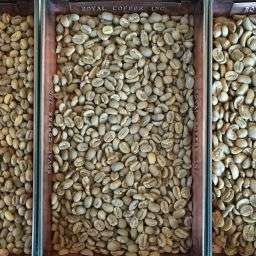
The debate between coffee beans and ground coffee is not only about preference but also involves a detailed comparison of costs. Each option has its own set of factors affecting its price, including production, packaging, and the intrinsic qualities that influence flavor and freshness. Understanding these variables is essential for coffee enthusiasts who seek to make informed decisions based on cost, convenience, and quality.
Overview of Coffee Beans
Whole coffee beans are lauded for their freshness and flavor, offering a sensory experience that pre-ground coffee struggles to match. The process from beans to brewing involves selecting the right beans, grinding them to the preferred size, and using a brewing method that extracts their full flavor. This hands-on approach ensures a cup of coffee that is superior in taste and aroma.
Overview of Ground Coffee
Ground coffee offers unparalleled convenience and accessibility. It eliminates the need for grinding, making it a go-to option for those with busy lifestyles or without the means to grind their own beans. However, this convenience comes at a cost to flavor and aroma.
Once coffee is ground, it begins to lose its freshness rapidly, leading to a noticeable decline in quality over time. The compromise between ease of use and sensory quality is a significant consideration for consumers.
By dissecting the characteristics and costs associated with coffee beans and ground coffee, consumers can navigate their preferences with a deeper understanding of what each option entails. This analysis lays the groundwork for further exploration into the nuances of coffee consumption, from the impact of storage conditions on shelf life to the cost-effectiveness of home grinding.
Factors Influencing Prices
The cost of coffee, whether beans or ground, is influenced by various factors including production, packaging, and branding. Production costs vary significantly depending on the coffee’s origin, with specialty coffees from specific regions often commanding higher prices due to their unique flavors and limited availability.
Packaging plays a crucial role as well, with vacuum-sealed bags designed to preserve freshness adding to the cost. Additionally, the brand’s reputation and marketing efforts can impact prices, as consumers may be willing to pay more for a product from a well-known or premium brand.
Bulk purchasing options present an opportunity for cost savings. Buying coffee in larger quantities can reduce the overall cost per unit, making it a more economical option for regular coffee drinkers. However, this advantage needs to be balanced with the risk of purchasing more coffee than can be consumed before it loses its freshness.
Average Market Prices
A comparative analysis reveals that whole bean coffee often has a higher upfront cost than pre-ground coffee. This discrepancy is partly due to the perceived value of fresh beans and their potential to offer a superior taste experience. However, the difference in price is not as significant as one might expect, and when considering the cost per cup, whole beans may offer better value over time due to their longer shelf life and superior flavor.
Case studies of popular brands illustrate diverse pricing strategies. Some premium brands price their whole beans higher, banking on their quality and the sensory experience they provide. Conversely, budget brands may minimize the price difference between their whole bean and ground options, aiming to attract cost-conscious consumers.
Shelf Life of Coffee Beans vs. Ground Coffee
The longevity and taste of coffee are significantly affected by storage conditions. Whole beans have a longer shelf life, retaining their flavor and aroma for weeks or even months when stored properly in airtight containers away from light and moisture. In contrast, ground coffee begins to lose its freshness almost immediately after grinding, with a noticeable decline in quality within days.
The grind size of coffee also impacts its shelf life. Finer grinds have a larger surface area exposed to air, accelerating the oxidation process and leading to quicker staleing. This makes freshly ground coffee ideal for immediate use, whereas whole beans offer more flexibility in terms of storage and use over time.
Quality Considerations
There’s a direct correlation between the freshness of coffee and its quality. Freshly ground beans provide a richer and more complex flavor profile than pre-ground coffee, which can taste flat and one-dimensional due to oxidation. Quality-conscious consumers often prioritize freshness over cost, opting for whole beans despite the potential for higher prices.
Consumer preferences have shown a clear inclination towards quality, with many willing to invest in higher-priced whole beans for a better taste experience. This trend underscores the importance of educating consumers about the benefits of whole beans, including their superior flavor and versatility in brewing methods.
Equipment and Accessories
Investing in a coffee grinder is a crucial initial step for those preferring whole beans. This investment can lead to significant long-term benefits, such as fresher tasting coffee and cost savings over buying pre-ground coffee. Manual grinders are a more affordable option, but they require more effort to use.
Electric grinders, on the other hand, offer convenience and consistency in grind size but at a higher cost. The choice between manual and electric grinders depends on one’s budget, convenience preference, and performance expectations.
Grinding Coffee at Home vs. Buying Pre-Ground
Grinding coffee at home can be more cost-effective over time. Although the upfront cost of purchasing a grinder might seem high, the ability to buy whole beans, which are often cheaper per pound than pre-ground coffee, can lead to savings.
Additionally, the emergence of coffee pods has influenced the market, often being more expensive per cup compared to beans and ground coffee. However, for those valuing convenience over cost, coffee pods may still be an attractive option despite their higher price point.
FAQs
- Is it cheaper to grind your own coffee beans? Yes, in the long run, it can be cheaper to grind your own coffee beans, considering the lower cost per pound of whole beans and the superior flavor quality that justifies the investment in a grinder.
- Which is more expensive: coffee beans or ground coffee? Generally, whole bean coffee tends to be slightly more expensive than ground coffee, reflecting its freshness and quality. However, the price difference is often minimal when considering the benefits.
- How do the costs of coffee beans and ground coffee compare when considering the quality? When quality is taken into account, whole beans often provide better value for money despite a higher initial cost. The superior taste and freshness of whole beans can make them a more economical choice over time.
Conclusion
The comparison between coffee beans and ground coffee reveals a complex interplay of cost, quality, and convenience. Whole beans offer superior freshness and flavor, potentially leading to savings and a better coffee experience in the long run. However, the convenience of pre-ground coffee and the simplicity of coffee pods cannot be overlooked for those prioritizing ease of use.
For consumers looking to balance these factors, the recommendation is to consider personal preferences and lifestyle. If freshness and flavor are paramount, investing in whole beans and a grinder is worthwhile. For those valuing convenience, pre-ground coffee or coffee pods may be the better choice, albeit at a higher cost per cup. Ultimately, understanding these dynamics can help coffee lovers make informed decisions that enhance their coffee experience while aligning with their budget and taste preferences.









